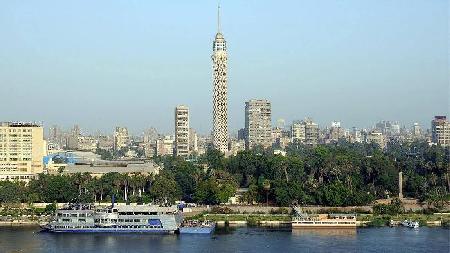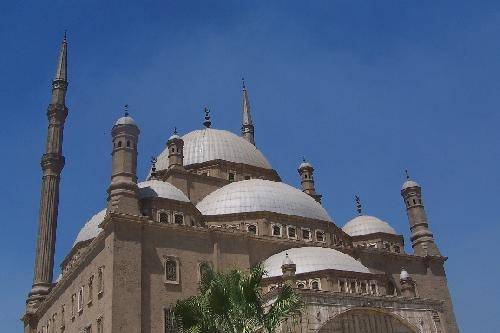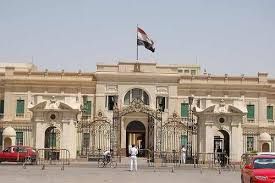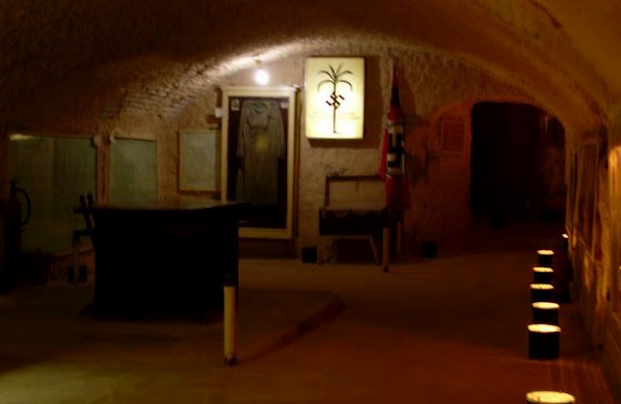Modern History of Egypt
Although the Ottoman army remained in the country after the French left Egypt, it was weak and had large internal conflicts. A lieutenant of a contingent of Albanian Ottoman army, called Mohammed Ali, took advantage of this jumble. In the five years following the departure of the French troops, Mohammed Ali intrigued and fought to become Pasha (Governor) of Egypt. Thereafter, Mohammed Ali was undisputed master of Egypt, and his efforts henceforth were directed primarily to the maintenance of his practical independence. The Sultan of Constantinople was too weak to oppose this usurpation and the only threat to the power of Muhammad Ali Pasha could come from the Mamelukes. In 1811, Muhammad Ali arranged a plot to get rid of the danger of the Mamelukes forever. He invited 470 Mameluke soldiers to a banquet at the Citadel and ordered them to be killed in what is known as the 'Citadel Massacre' and thus, the Mameluke threat was brought to an end.
Mohammed Ali Dynasty
Basically, Muhammad Ali's development strategy was based on agriculture. He expanded the cultivated areas; and introduced the cultivation of cotton, planted crops, sugar cane and rice. He also aimed at exporting these crops, especially the long-staple cotton. Public works were financed from the surplus income of agricultural production. He attended to developing the infrastructure of the country, improving methods of irrigation, excavating canals, building dams and barrages. Besides, Muhammad Ali was also committed to the industrial development of Egypt. He raised the country from medieval feudalism to something close to industrialization.
The government set up modern factories for weaving cotton, silk, and wool. With the assistance of foreign advisers and imported machinery, he established factories for producing sugar, indigo, glass, and tanning. Prohibiting the export of the agricultural products, he monopolized their resources. Consequently, the government was buying directly from the peasants and selling to the buyer, cutting out the intermediaries or merchants. Commercial activities took place aiming at establishing foreign trade monopolies and acquiring a favorable balance of trade. However, in 1838 Muhammad Ali was compelled to agree to the Anglo-Ottoman Convention which established "free trade" in Egypt. Muhammad Ali also worked on financing and equipping the military. He was an ambitious expansionist whose armies extended his power over Syria, Sudan, Greece and the Arabian Peninsula until he controlled a large portion of the Ottoman Empire by 1839.
When he died in 1848, his heirs made their objectives to continue reforms and social projects in order to catch up with European civilization. Among these projects was the creation of railways, factories as well as the first postal and telegraph system in the world. The young Egyptian cotton industry grew, while the production of the U.S.A was affected by civil war. Profits were generally used in sustaining new projects. The biggest of all was the Suez Canal, opened in 1869 with great pomp and with the assistance of almost all European monarchs.
Abbas I
After Muhammad Ali's death, his grandson, Abbas I, succeeded him. Abbas I opened Egypt to free trade, closing schools and factories and effectively halting the moves towards industrial development and economic self-sufficiency Mohammed Ali had set in motion.
Khedive Ismail
During the reign of Khedive Ismail, Egypt witnessed an awakening administrative reform, while agriculture, industry, construction and architecture prospered. Most notable of his achievements was the establishment of the Opera House, railroads and the Suez Canal which was opened to international navigation in 1869. Ismail was depending on the vastly inflated cotton prices caused by the American Civil War in funding his development projects. However, by the end of the war, Ismail had to find new sources of funding to keep his reform efforts alive. He depended on international loan and followed the policy of extorting the poverty-stricken population. He also sold 176,602 Suez Canal shares to the British government. Gradually, Egypt was put under the British Protection. In December 1875, Stephen Cave and Colonel Stokes were sent to Egypt to inquire into the financial situation. In September 1878, a constitutional ministry was formed, under the presidency of Nubar Pasha and two foreign ministers of finance and of public works (one was British and the other French).
Many Europeans were employed at high salaries in various government departments. Opposition to European intervention in Egypt's internal affairs emerged from the Assembly of Delegates, which Ismail had created in 1866, and from the Egyptian army officers. Between January and July 1879, the assembly held a meeting in which it demanded more control over financial matters and accountability of the European ministers to the assembly. But in April 1879 and under foreign pressure, Ismail ordered the assembly to dissolve. The National Society had drawn up a plan for national reform (Laiha Wataniyah) that proposed constitutional and financial reforms to increase the power of the assembly and resolve Egypt's financial problems without foreign advisers or control. Ismail agreed on this Laiha and rejected the proposal to declare Egypt bankrupt and stated his intent to meet all obligations to Egypt's creditors. He also invited Sharif Pasha to form a government. Then, the European ministers were dismissed.
European powers put pressure on the Ottoman Empire and Khedive Ismail was forced to abdicate in 1879. Britain began to assume greater control over the country. In the meantime, Ismail's son, Tawfik, was appointed Khedive of Egypt. In July 1880, the Law of Liquidation, which limited Egypt to 50% of its total income, was promulgated. The rest went to the Public Debt Safe to service the debt. At that time, the Assembly of Delegates remained dissolved.
The English Occupation of Egypt
In 1881, the Egyptian army officers demonstrated their strength and their ability to intimidate the Khedive. The army society included Colonel Ahmad Urabi, who would become the leader of the nationalist movement, and Colonels Ali Fahmi and Abd El-All Hilmi. In 1881, a link was formed between the Urabists and the National Society. This expanded group took the name 'El Hizb al Watani El Ahli' (the National Popular Party). A large military demonstration in September 1881 forced the Khedive Tawfik to dismiss his Prime Minister. By the beginning of the year 1882, Urabi joined the government as undersecretary for war. In January 1882, Britain and France sent a joint note declaring their support for the Khedive. In April 1882, France and Britain sent warships to Alexandria to support the Khedive amidst a turbulent climate, spreading fear of invasion throughout the country. The nationalist movement grew stronger and several popular revolts broke out. However, the Urabi Revolution, in 1882, ended up with Egypt being occupied by Britain.
In July 1882, the British fleet began bombarding Alexandria. The British installed the khedive in the Ras al Tin Palace. In August, they invaded the Suez Canal Zone. The decisive battle was fought at Tall El Kabir on September 13, 1882. Urabi was caught and banished to Ceylon Island. The purpose of the invasion had been to restore political stability to Egypt under a government of the Khedive and international controls which were in place to streamline Egyptian financing since 1876. In fact, Sultan Abd El-Hamid had refused Britain's request to intervene in Egypt against Urabi and to preserve the khedival government.
Also, Britain's influence in Istanbul was declining while that of Germany was rising. Moreover, Britain's invasion of Egypt gave it the opportunity to supplant French influence in the country. Finally, Britain was determined to preserve its control over the Suez Canal and to safeguard the vital route to India. Between 1883 and the outbreak of World War I in 1914, there were three British consuls in Egypt: Lord Cromer (1883-1907), Sir John Eldon Gorst (1907-11), and Lord Herbert Kitchener (1911-14). In 1883, being the British administrator, Lord Cromer became the effective ruler of the country. In 1906, the Denshawai Incident provoked a questioning of British rule in Egypt. In 1906, in a village called Denshawai, near the Egyptian Delta, British officers were shooting pigeons for sport but they accidentally wounded an Egyptian woman. Feeling outrage, the villagers surrounded the British officers and, in the confusion, wounded two of them. The officers in response opened fire and fled. Eventually, one of them died of his wounds while returning to camp. The ensuring response from the British was explosive.
An Egyptian peasant was beaten to death by British soldiers after the dead officer was found. Fifty-two Egyptians involved in the incident were charged, and four sentenced to death with others sentenced heavily with hard labor or public flogging. National sentiments were increased after the incident and political parties started to form in protest to British rule with the ultimate aim of independence. In 1907, Gorst had to face a growing Egyptian nationalism that demanded British evacuation from the country. His attempts to pacify the nationalists went in vain. In 1911, Kitchener arrived in Egypt. He was already famous for being the man who had avenged the death of General Charles Gordon in Khartoum in 1885 during the Mahdist uprising. Kitchener introduced a new constitution in 1913 which gave the country some representative institutions both locally and nationally.
The Organic Law of 1913 provided for a legislative assembly with an increased number of elected members and expanded powers. The Egyptians' desire to attain self-determination was reinforced when the allies used the country as a barracks during the First World War. When the Ottoman Empire entered World War I in 1914 on the side of the Central Powers, Martial law was declared in Egypt. The British Government declared Egypt a protectorate, severing the country from the Ottoman Empire. Britain deposed Khedive Abbas II, who had succeeded Khedive Tawfik upon the latter's death in 1892, because Abbas II, who was in Istanbul when the war broke out, was suspected of pro-German sympathies. Khedive Tawfik was quite obedient to the British colony. Then, Kitchener was recalled to London to serve as minister of war.
The National Movements in Egypt
In September 1918, Egypt made the first moves towards the formation of a wafd, or delegation. This delegation attended the Paris Peace Conference in 1919 in order to voice its demands for independence. The idea for a wafd had originated among prominent members of the Umma Party, including Lutfi al Sayyid, Saad Zaghlul, Muhammad Mahmoud, Ali Sharawy, and Abd al-Aziz Fahmy. The demanding of independence in international conferences frightened the British of the influence of Saad Zaghlul and his party leading to his deporting to Malta Island. The popular national sentiment was expressed through 1919 Revolution. The political awareness grew amongst people and it was not confined to men only, since also women participated in political movements led by Safia Zaghlul (wife of Saad Zaghlul), Huda Sharawy (originator of the Egyptian Feminist Union), and Mona Fahmy Wissa. 300 veiled upper-class Egyptian women staged a demonstration against the British Occupation, an event that marked the entrance of Egyptian women into public life. These conscious women and others were the pioneers of woman share in public life in Egypt.
Lower-class women also demonstrated in the streets and in the countryside, they engaged in activities like cutting rail lines. By the end of 1919, Britain sent Milner Commission to Egypt in an attempt to solve the situation. In 1920, negotiations were held between Britain and Egypt in London. However, with Britain's insistence on maintaining control over the Suez Canal Zone, the Egyptian mission returned disappointed. In December 1921, the colonizers imposed martial law and deported Zaghlul to Seychelles Island. In 1922, Britain declared the abolition of the protectorate, the independence of Egypt and the establishment of The Egyptian Kingdom.
Sultan Ahmad Fuad became King Fuad I. However, Britain continued to interfere in the Egyptian political life and imposed control over the Canal Zone, Sudan and other Egypt's external properties. A triangular struggle over domination characterized the years after independence. Such struggle was found among the British, the King and the Nationalist Wafd Party, which had the support of the population. The first Egyptian Constitution was issued in 1923.
An electoral law was also issued that introduced a new phase in Egypt's political development represented by the parliamentary elections. In 1924, Saad Zaghlul was elected Prime Minister. Besides the Wafd Party, other political powers emerged at that time, such as the Communist Party (1925) and the Muslim Brotherhood (1928) with its leader Hassan al-Banna, which eventually became an effective political and religious power. In1936, King Fuad I died and his son, Farouk succeeded him. He signed the Anglo-Egyptian Treaty, demanding Britain to evacuate the Egyptian Land of all British troops, except at the Suez Canal, which agreed to be evacuated by 1949.
Egypt during the World War (1914-1945)
During World War I (1914-1918), Britain was exploiting the Egyptian resources and left it by the end of the war suffering the adverse effects of soaring prices and unemployment. With the beginning of World War II (1939-1945), Egypt was used as a base for Allied Power. In fact, the war was not entirely against the interest of the Egyptians, especially merchants and businessmen because of the arrival of thousands of Allied soldiers with money to be spent during their 48-hour permit. For Egyptians, war was a kind of a conflict among the European powers; however, some were aiding the German victory, as an enemy of Britain, their main enemy.
The British worked on preventing any kind of alliance between Egyptians and Germans. In 1942, German army under General Erwin Rommel advanced towards Egypt. Students held rallies in support of Rommel and a group of Egyptian army officers, which included future presidents Nasser and Saddat, decided to help the German general to move about the city. But the Germans failed to break the defenses and the British remained in Egypt over ten years. The British ambassador in Egypt, Lampson, ordered the King to ask Mustafa Nahhas, the Wafdist leader, to form a government which made the support for the Wafd to erode. In 1943, the popularity of the Wafd deteriorated by the Black Book which was published by Makram Ubayd, a disaffected former Wafd member. In this book, corrupt dealings of Nahhas Pasha were revealed, the matter which affected his reputation as well as the reputation of the Wafd itself. In 1945, Mahmoud Nuqrashi, the Prime Minister of Egypt, demanded Britain to evacuate from the country.
The British had withdrawn their troops to the Suez Canal Zone when negotiations foundered over the issue of Sudan. When the Sudan issue was discussed, Britain said Sudan was ready for self-government. Egyptian nationalists assured the unity of the Nile Valley and that Sudan is part of Egypt. Mahmoud Nuqrashi suggested the question of Sudan to be discussed in the newly created United Nations (UN) session.
Egypt Independence (1952)








